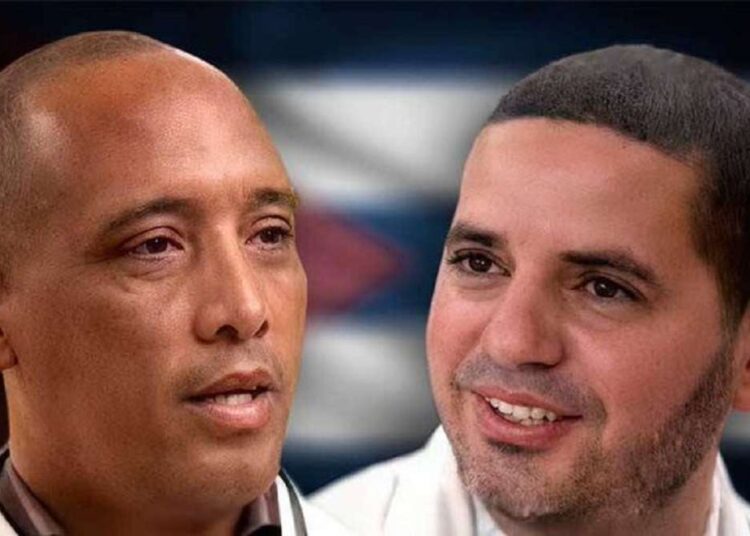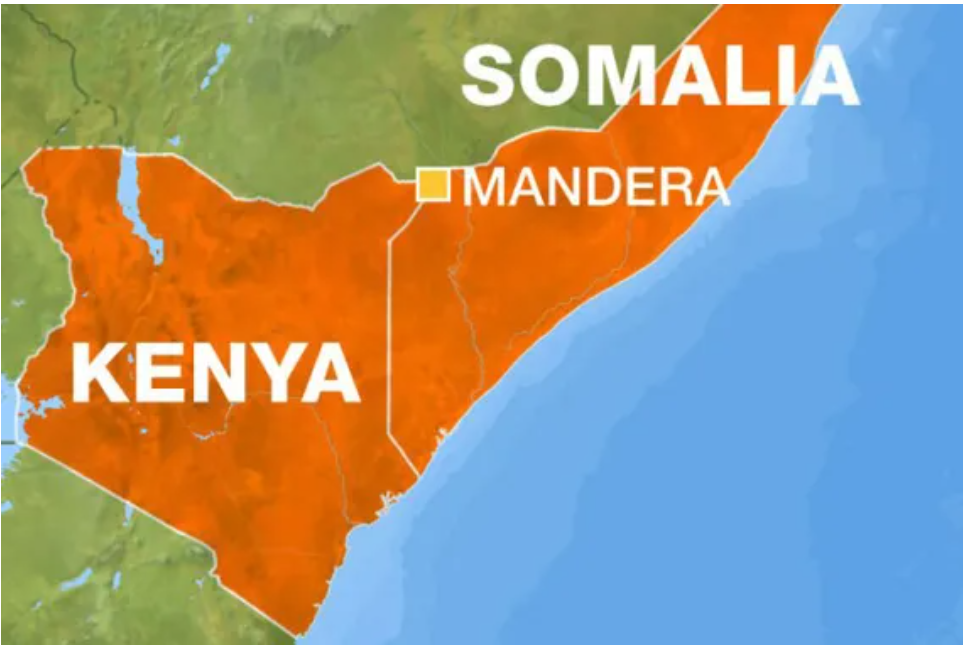For a couple of days, information has been circulating from unofficial sources that Cuban doctors Assel Herrera and Landy Rodríguez had died as victims of a U.S. drone attack in Somalia, where the Al-Shabaab group, which kidnapped them in 2019, had kept them captive.
OnCuba proposes a review of the main events related to the case from April 12, 2019, the day of the fateful kidnapping, to the present, while the Cuban authorities assure that they are working to clarify the facts and confirm or deny the news. In addition, interesting background information is included for what happened with the doctors almost five years ago.
Expreso toda mi solidaridad y afecto a las familias de nuestros médicos Assel y Landy, en estos momentos de incertidumbre y acrecentado dolor, ante las trágicas noticias aún no confirmadas, en cuyo esclarecimiento trabajamos arduamente con autoridades internacionales.
— Miguel Díaz-Canel Bermúdez (@DiazCanelB) February 17, 2024
In the Arabic language, Al-Shabaab means “The Young Ones.” But it is not a youth organization from the North African world, but rather a terrorist group linked to Al-Qaeda, founded in 1985 by Osama bin Laden during the Soviet invasion of Afghanistan.
The emergence of Al-Shabaab is a consequence of the power vacuum that occurred in Somalia after the end of the Siad Barre government (1969-1991), which caused high social fragmentation and the resurgence of traditional and religious authorities who dedicated themselves to regulating their way — the “traditional” — social relations.
It was also a result of the reaction caused by the invasion of Somalia by Ethiopia (2006), supporting a government militarily defeated by the Union of Islamic Courts with President Sharif Sheihk Ahmed (2009-2012) at the helm. This presence of regional and even international actors in the conflict generated hostile attitudes towards Western and neighboring countries. And it served as an ideological substrate for the members of Al Shabaab.
Its first modality is armed terror actions. Between 2008 and 2015, they carried out 272 attacks against Kenya. A kind of macabre cause-effect relationship characteristic of terrorism operates here: the larger and more brutal the attack, the group will be perceived as larger and more powerful than it actually is.
In 2013, one of the most horrifying and bloody events occurred: the massacre at Westgate, the main shopping center in Nairobi, the Kenyan capital. At noon on September 21, Al-Shabaab forces stormed the facility, throwing grenades and shooting indiscriminately at shoppers, including women, children and the elderly.
In August 2014, the Somali government launched Operation Indian Ocean to wipe out Al-Shabaab enclaves and bases in its territory. A month later, in September, a U.S. drone strike killed its leader, Ahmed Abdi Godane.
Intelligence reports indicated that the air strike had constituted not only a major blow to the brain of Al Shabaab but also had a psychological-moral effect on the organization, crossed by internal conflicts and dissensions that have even resulted in the death of commanders. and other leaders, many of them trained in Al Qaeda camps in Afghanistan.
In 2022 they executed a coordinated assault on Mogadishu, resulting in the loss of 120 lives.
Its second modality is the kidnapping of people. Among them, the following stand out:
November 10, 2008. Two Italian nuns, María Teresa Olivero (67) and Catarina Girardo (60) are kidnapped in Wak, Mandera. The first action of this type carried out by Al-Shabaab. They were released after more than one hundred days of captivity, with a payment of 1.5 million dollars.
December 27, 2010. Spaniards Juan Alfonso Rey Echeverry and José Alfonso García, captain and boatswain respectively of the Mozambican fishing vessel Vega V, are kidnapped in the Indian Ocean along with 19 Mozambicans and 3 Indonesians. They were released on May 14, 2011. According to El País, “public organizations linked to the Spanish government paid just under $5 million as a ransom.
September 2011. Al-Shabaab members break into a chalet at Kiwayu Safari Village Hotel, where David and Judith Tebbut, a British couple on vacation, are staying. The man is murdered while trying to protect his wife, who was finally kidnapped and taken to the Somali side. The organization received 1.1 million (£820,000) in ransom after holding the woman in captivity for six months. She was released on March 21, 2012. The British government denied having paid the ransom.
October 13, 2011. Two Médecins Sans Frontières (MSF) workers are kidnapped in the Dadaab camp, Garissa County, Kenya, about 100 kilometers from the border with Somalia. Blanca Thiebaut (30) and Monserrat Serra (40), both Spanish, were held captive for 21 months, almost two years. The MSF executive, José Antonio Bastos, thanked governments, NGOs and public opinion for their support, but preferred not to reveal details of the operation that allowed them to be released.
July 13, 2017. Al-Shabaab members kidnap Mayra Mariam El-Maawy, Kenya’s Secretary of Public Works, in Lamu. Elite forces managed to rescue her about 45 minutes after the attack, along with five other officials. El-Maawy was rushed to South Africa to receive treatment for her injuries, but she died in September.
November 20, 2018. In Malindi, Kilifi County, Kenya, Silvia Romano, a 23-year-old Italian member of the NGO Africa Milele Onlus, is kidnapped. The action supports the existence of a pattern in the kidnappings: targets selected after observation and monitoring work, in which collaborators from the Kenyan side are involved. Romano was released in May 2020. She returned converted to Islam, a change “totally spontaneous and not forced.” She adopted the name of Aisha, the prophet’s first wife.
January 6, 2019. Media outlets report a sharp increase in U.S.-led airstrikes in Somalia.
In March 2017, the Pentagon received approval from the White House to expand its fight against Al-Shabaab militants. Commanders no longer require a high-level investigation to approve attacks against troops in areas of “active hostilities in Somalia.”
“It allows us to pursue targets more quickly,” said Gen. Thomas Walhauser of the U.S. Africa Command (Africom).
In 2018 Africom carried out at least 46 airstrikes in Somalia after the previous record of 38 in 2017, according to the Bureau of Investigative Journalism (BIJ).
In 2017 and 2018, U.S. airstrikes focused mainly on the southern part of the country. According to Africom, they “reduce Al-Shabaab’s ability to plan future attacks, disrupt its leadership networks and degrade its freedom of maneuver.”
The then-leader of Al-Shabaab, Ahmed Abdi Godane, was killed by a U.S. drone strike on September 1, 2014, in southern Somalia.
April 12, 2019. Surgeon Landy Rodríguez (Villa Clara) and general medicine specialist Assel Herrera (Las Tunas) are kidnapped when the vehicle in which they were going to the hospital in the border town of Mandera was attacked by members of the terrorist organization Al-Shabaab.
According to reports, at 09:00 local time (06:00 GMT) the attackers blocked the way to the official vehicle with two cars and opened fire, killing one of the police officers accompanying the doctors, while a second agent was able to escape alive.
Those kidnapped were part of a contingent of one hundred Cuban doctors who arrived in Kenya in June 2018 under an agreement signed between both governments to improve access to specialized medical services in the African nation.
Their arrival caused controversy among Kenyan doctors, who expressed their rejection of hiring foreign professionals for fear of seeing their employment opportunities limited and filed lawsuits. However, areas like Mandera had been left without local medical services.
April 13, 2019 The local newspaper Standard Digital reported that after the events, other collaborators of the Cuban contingent were transferred to the country’s capital.
According to the Daily Nation, the kidnapped Cuban doctors had expressed concern about the 5-kilometer distance they had to travel daily from their home in Busley to Mandera Hospital. They both lived in the house of a county government official.
April 15, 2019 Muslim authorities in Garissa, Kenya, where Cuban doctors also work, asked the government to use “all possible means to rescue the two Cuban doctors,” The Star reported.
Supreme Council of Kenya Muslims (Supkem) president Abdullahi Salat said the kidnapping was un-Islamic and unacceptable.
“We want to strongly condemn this incident which only served to tarnish the image of our region once again when we all know that Mandera was slowly but steadily recovering from insecurity. It was four steps forward and now six steps back,” Salat said.
He added that the doctors were serving passionately after most Kenyan doctors working in the northeast had fled insecurity.
April 15, 2019 A Nairobi court allows the police to detain the Cubans’ driver for 15 days.
The accused, Isaack Ibrein Robow, is arraigned before Milimani Court Resident Magistrate Muthoni Nzibe. The prosecution asked for more time to conclude the investigations.
April 15, 2019 The Kenyan police continued their search operation in Mandera to rescue the two kidnapped Cuban doctors.
“We are sweeping the city door to door looking for suspects who could be linked to the kidnapping,” Mandera County Police Commander Jeremiah ole Kosiom was quoted as saying by the Daily Nation.
Security officials told the Sunday Nation that the gunmen crossed the border and headed to Bula Hawa, a Somali town where many locals support Al-Shabaab.
Sources revealed to the Standard Digital that the doctors were alive and being transferred from one place to another.
Mandera Governor Ali Roba and Mandera East MP Omar Maalim promised that clan elders would assist the government in the search and rescue.
“Our clan elders will engage with their counterparts in Somalia to ensure the safety and safe return of the doctors,” Roba told the Sunday Nation.
On Saturday, April 13, police spokesperson Charles Owino reported that the National Security Advisory Committee met and reviewed the status of the operation. They then reported it to cabinet secretaries Sicily Kariuki (Health), Fred Matiang’i (Interior) and Raychelle Omamo (Defense).
The police spokesman ruled out the option of paying a ransom to secure the doctors’ release, saying this would encourage kidnappings. This is a policy followed by most governments.
“We must use professional means permitted by law to fulfill our duties. I don’t think paying a ransom is an admissible method,” he said.
April 15, 2019 The search for the two kidnapped Cuban doctors enters the third day with little progress, the Daily Nation newspaper said.
A police source told the newspaper that information shared indicated that the doctors were being held in El Adde, in the Gedow region of Somalia.
The Mandera County government, led by Governor Ali Roba, met with a team from the National Government led by the Commissioner of the North Eastern Region, Mohamed Birik.
A source at the meeting confirmed to the Daily Nation that arrangements had been completed to send elders to Somalia to assist in the negotiation.
According to The Star newspaper, a representation of the elders had already gone to Somalia for this purpose on Friday, April 12. “The team will go to Somalia to try to negotiate the release of the doctors,” the source said.
According to The Star, Governor Ali Roba wondered how the militants managed to kidnap the doctors despite the heavy presence of security officers in the city. Mandera also has around 100 KDF soldiers.
“Honestly, how do we have over a thousand security officers in a small town like this? However, that incident was able to occur in broad daylight. These are the questions we must ask ourselves. It seems strange to me,” Roba said.
April 17, 2019 Somali elders joined the mission to free the kidnapped Cuban doctors, the Daily Nation newspaper reported.
As in other African communities, Somalis have an ancient tradition: elders provide local reconciliation solutions, the media explained.
“Decades after independence, traditional forms of justice continue to play an important role along the Kenya-Somalia border, complementing government systems and, at times, replacing them,” he added.
The participation of the elders is guaranteed by an unwritten law that prevents them from being harmed under any circumstances, making it easier for Mandera’s group to enter the Al-Shabaab area without fear of being attacked.
Members of this group must be over 60 years old and “of good character.”
Selection to the council varies between the two countries but generally depends on experience, oratorical skills, impartiality, the ability to compromise and persuade, experience in xeer (common law), and religious knowledge. You also need to have money to access this group.
Abdullahi Abdi, a Somali elder who chairs the National Muslim Leaders Forum, told the Daily Nation that elders play a visible role in the institutional structure of the community.
“Since time immemorial, the existence of functioning traditional institutions, such as the Somali Council of Elders in Kenya and Somalia, has been essential. They have played important developmental, administrative and political roles in rural areas,” Abdi said.
“They have consolidated their traditional role as mediators of disputes and enforcers of common laws, which regulate most aspects of social life within Somali clans,” he added.
April 17, 2019 Foreign Affairs Principal Secretary Macharia Kamau told the Daily Nation that everything possible would be done to ensure the safe return of the doctors.
“We will have the opportunity to do a complete analysis of what happened, but, for now, the objective is to free them and return them to their families. They are professionals who have served this country with dedication and we are working hard to ensure they are safe,” he stated in an interview with the newspaper.
April 18, 2019 Cuban President Miguel Díaz-Canel talks by telephone with his counterparts from Kenya, Uhuru Kenyatta, and from Somalia, Mohamed Abdullahi Mohamed, about actions to recover the kidnapped Cuban doctors.
The Kenyan government indicated that it was collaborating with the authorities of Somalia, where the kidnappers took the doctors, to achieve their rescue.
“Cuba is striving tirelessly for the safe return of Assel and Landy, our doctors kidnapped in Kenya,” Díaz-Canel wrote on his official Twitter account, where he assured to share with the doctors’ families “the certainty that their humanitarian mission will be respected and recognized.”
April 18, 2019 One day after the events, Foreign Minister Bruno Rodríguez spoke by phone with his Kenyan counterpart, Monica Juma, and noted that both governments maintain “constant monitoring.”
May 2019 Traditional leaders from Kenya and Somalia who traveled to the Somali region of Jubaland, controlled by Al-Shabaab, to negotiate on behalf of the doctors, reported seeing the Cubans providing medical assistance to the local population.
June 12, 2020 The presidents of Cuba and Kenya discussed the efforts for the release of the two doctors kidnapped in the African country, as reported by the Cuban president on his Twitter account.
October 5, 2020 Bruno Rodríguez speaks by telephone with his Somali counterpart, Ahmed Isse Awad, about the two Cuban doctors almost a year and six months earlier, while they were working in Kenya.
“I had a telephone conversation with the Foreign Minister of Somalia Mr. Ahmed Isse Awad. I appreciated the support and efforts of his government to guarantee the safe return of our kidnapped doctors,” he posted on his Twitter account.
The foreign ministers of both countries held a telephone conversation on the same topic at the end of August, and on other occasions, the health ministers and other members of both governments have done so.
October 7, 2020 A senior Somali intelligence official says the doctors were freed after three months of negotiations with their captors.
The official spoke on condition of anonymity because he was not authorized to brief the media.
Several sources told the AP agency that Somali intelligence, acting at the request of the Cuban government, negotiated the release of the doctors after obtaining a video in which they appeared several months ago.
The Press Director of the Cuban Ministry of Foreign Affairs denied the information.
October 7, 2020 The Somali government describes as false the release of the two Cuban doctors, announced hours before by intelligence service sources.
“The news about the release of the doctors is false,” Somali Foreign Minister Ahmed Ise Awas said in statements to the Somali service of Voice Of America (VOA) radio.
“The government of Somalia is working to free the hostages and continues to cooperate with the Cuban government, but the release has not yet occurred,” he added.
Awas also explained that negotiations between the Somali Intelligence Agency (NISA) and members of Al-Shabaab were still underway and claimed to have the responsibility of rescuing the doctors.
A senior NISA official who requested anonymity justified himself, in statements to EFE, alleging that the operation to free the doctors had been frustrated at the last moment after a “leak” paralyzed the “safe transfer” of the kidnapped.
“We had the transfer plan, but someone inside NISA spoke ahead of time,” the source said.
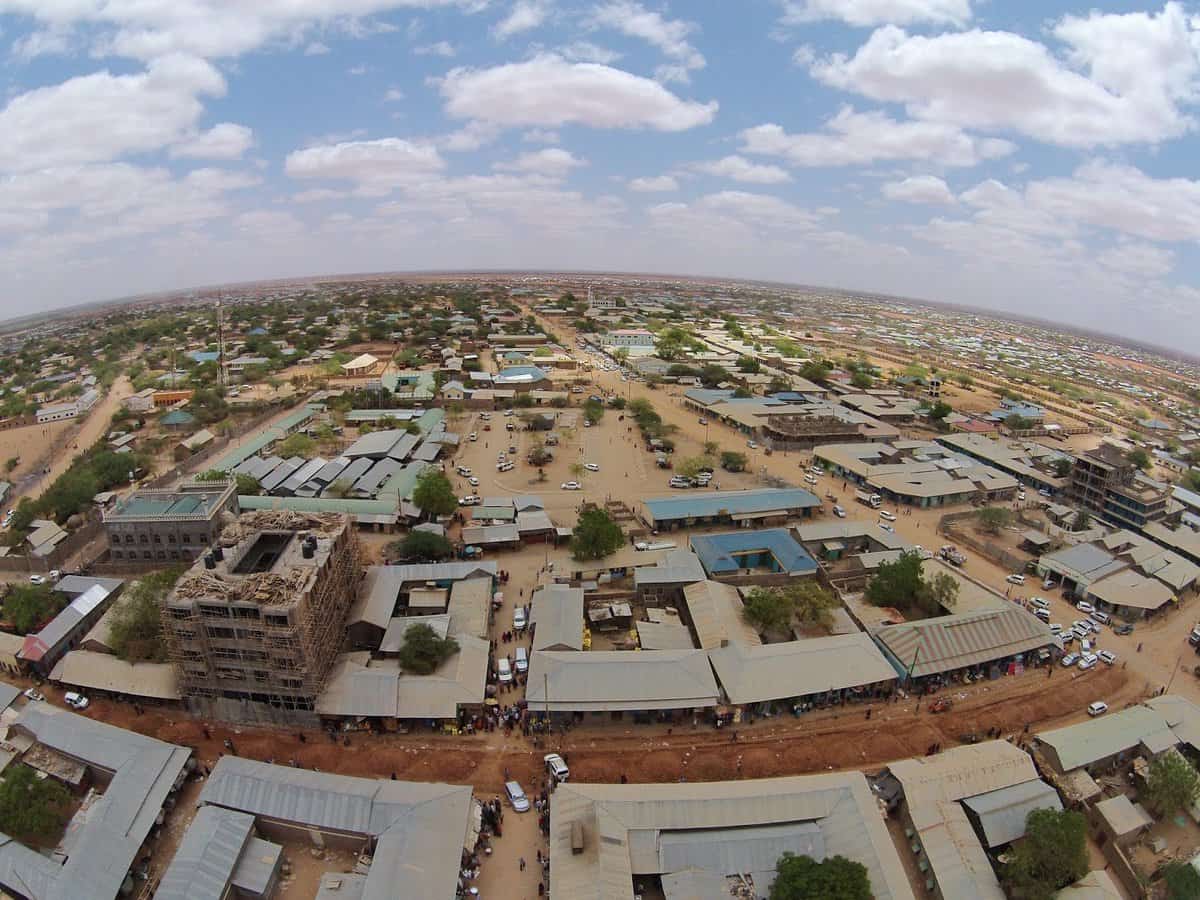
October 9, 2020 Cuban President Miguel Díaz-Canel and his Kenyan counterpart, Uhuru Kenyatta, spoke by telephone two days after the Cuban government denied news about the release of the kidnapped Cuban doctors.
“I had a useful telephone conversation with the President of Kenya, Uhuru Kenyatta, where we exchanged on bilateral and multilateral agenda issues,” the president wrote on his Twitter profile. Furthermore, he assured that during the telephone conversation, both governments ratified “that we will continue working together to achieve the safe return of Landy and Assel to the homeland.”
The spokesperson for the Cuban Foreign Ministry, Juan Antonio Fernández, confirmed that Cuba was systematically following the issue and that it aroused the greatest interest of the population.
For his part, Somali Foreign Minister Ahmed Ise Awas said that his government continued working “to free the hostages and continues to cooperate with the Cuban government,” but that “the release has not yet occurred.”
Awas also explained that negotiations between the Somali Intelligence Agency (NISA) and members of Al-Shabaab were still underway and claimed to have the responsibility of “rescuing the doctors.”
February 24, 2021 Cuban Minister of Health José Ángel Portal Miranda indicated that he had a telephone conversation with his Kenyan counterpart, Mutahi Kagwe, in which they discussed the kidnapping. “We talked about the continuity of efforts to achieve the return of the doctors.”
The public statements by Kenya and Cuba in favor of negotiations to release the doctors contrast with the silence that the Somali government usually maintains on the case.
April 17, 2021 Two years after the kidnapping, the Kenyan government affirms that efforts to rescue the doctors continued. “We are working with our neighbors and partners to guarantee their safe release,” so that “they can be reunited with their families,” government spokesman Cyrus Oguna told EFE.
When asked if the doctors were still alive in Somalia, Oguna responded: “the collaborative effort” to get these doctors released is a “sign that they are alive.”
“I cannot say exactly when the process will be completed,” he concluded.
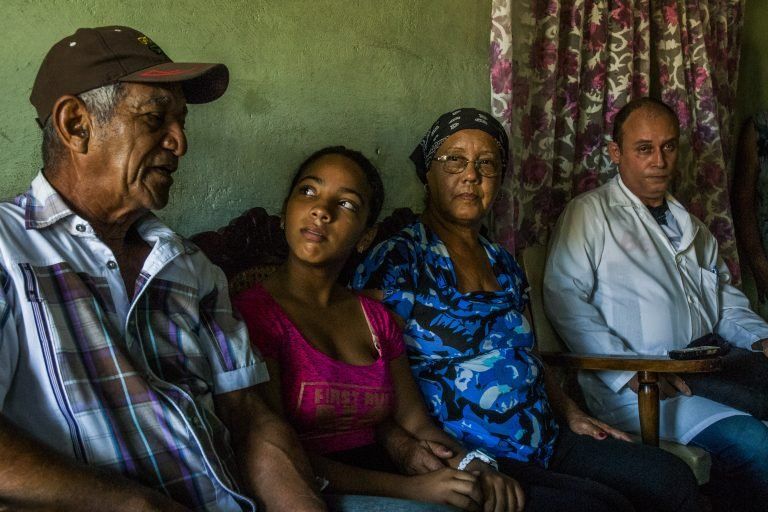
March 26, 2022 Isaack Ibrein Robow, the driver hired by the Mandera government to drive the Cuban doctors, was found guilty of four of the five charges against him in relation to the kidnapping. Also for his responsibility in the murder of one of the two police officers who were escorting them, at the hands of the attackers. They gave him a life sentence.
January 21, 2023 U.S. military sources announce that a drone attack had killed 30 Al-Shabaab militants. The operation took place near the town of Galcad, about 260 kilometers northeast of the capital, Mogadishu.
The bombing came as the Somali army was under attack by more than a hundred terrorist militants, the U.S. Africa Command said. Although Al-Shabaab has been driven out of Mogadishu and other areas, it continues to attack military and civilian targets.
“U.S. Africa Command forces will continue to train, advise and equip partner forces to help give them the tools they need to defeat Al-Shabaab, the largest and deadliest Al Qaeda network in the world,” the statement said.
April 2, 2023 “We persevere in our battle for the safe return to Cuba of doctors Assel Herrera Correa and Landy Rodríguez Hernández. Four years after their kidnapping, we continue our tireless efforts to have them among us, along with their families and their people,” Díaz-Canel wrote on his Twitter account.
And he continued: “Four years after their abduction, we continue our tireless efforts to have them among us, along with their families and their people.”
April 12, 2023 The kidnapping of two Cuban doctors in Kenya is four years old without any clue about the fate of the doctors.
Since the arrival of the Kenyan president, William Ruto, to power in September 2022, the Executive has not commented publicly on the case. Official silence has also prevailed in neighboring Somalia, where the two doctors are supposedly still captive.
“No one knows the current whereabouts of the two Cuban doctors. We also do not have updated information on the current state of their well-being,” a source from the Somali National Intelligence and Security Agency (NISA) told EFE on condition of anonymity because he is not authorized to speak to the media.
“It is believed that they are still being held somewhere in an Al-Shabaab stronghold since their abduction,” he noted. “We have no further details at this time,” he insisted, “and nothing new has emerged in the last two years.”
“It’s an unsolved case, but that doesn’t mean people should lose hope,” the source concluded.
The non-resident Cuban ambassador in Somalia, Juan Manuel Rodríguez Vázquez, declared: “Of course, we keep in mind the date of the fourth anniversary [of the kidnapping]. We work every day to guarantee the return [of the doctors].”
Perseveramos en nuestro batallar por el regreso seguro a la Patria de los doctores Assel Herrera Correa y Landy Rodríguez Hernández. A 4 años de su secuestro, proseguimos denodadas gestiones sin cejar en el empeño de tenerlos entre nosotros, junto a sus familiares y su pueblo.
— Miguel Díaz-Canel Bermúdez (@DiazCanelB) April 12, 2023
June 16, 2023 Kenyan police and government sources said that the kidnappers of the Cuban doctors demanded 1.5 million dollars (1.35 million euros) for their release.
A senior government official in Mandera said the kidnappers demanded a ransom. “The amount is 1.5 million dollars. That’s what they want,” he said on condition of anonymity.
Kenyan police spokesman Charles Owino said he had no such information.
April 4, 2023 Former Somali Foreign Minister Ahmed Isse Awad says Al-Shabaab had not officially made any demands on the doctors. The group had previously released foreigners it was holding hostage after “alleged” ransom payments.
According to Awad, his country, “to the best of our ability,” will play a role in securing the freedom of the two doctors.
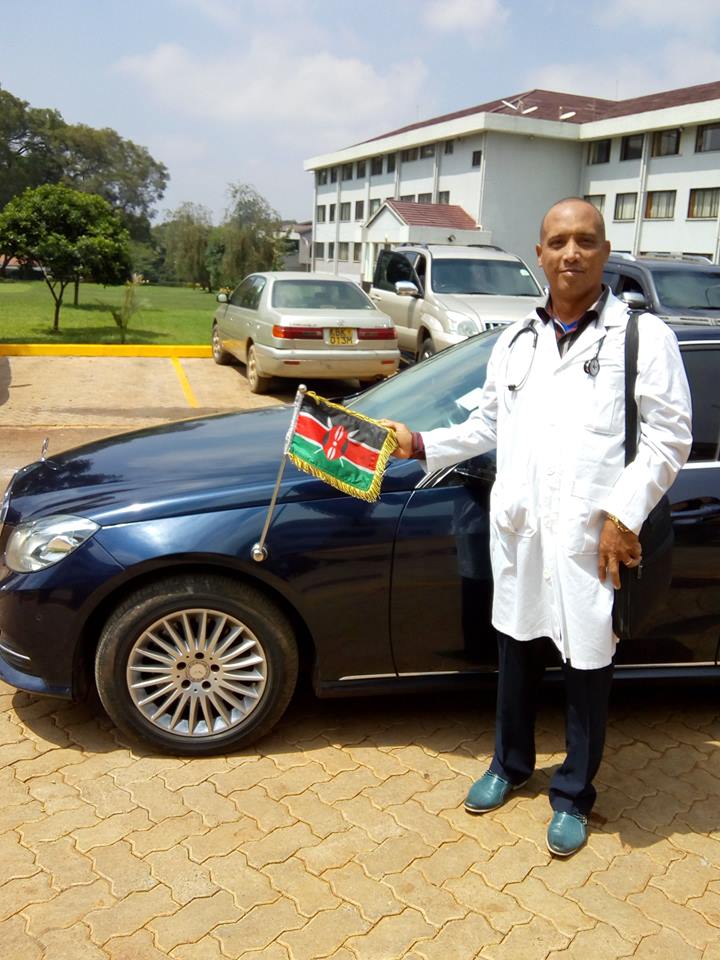
February 13, 2023 U.S. Africa Command (Africom) issues a statement reporting an airstrike in Donlaye, near the town of Amara, Galmudug State, Somalia. 117 Al-Shabaab militants died.
December 23, 2023 The Somali government reports that a senior Al-Shabaab commander involved in terrorist events in Somalia and Kenya was killed in a U.S. airstrike near the city of Jilib. The government adds that the operation that led to the death of Maalim Ayman was the result of collaboration between the Somali Armed Forces and the U.S. military.
“His murder is a thorn that has been removed from the Somali people,” said a statement issued by the Ministry of Information.
February 17, 2024 The Somali Ministry of Defense announces that 15 Al-Shabaab terrorists were killed and another 20 were injured during aerial drone operations in the provinces of Lower Shabelle and Galguduudm, in southern Somalia.
February 17, 2024 A statement from Al-Shabaab that circulated on Telegram claims that both Cuban doctors died as a result of a U.S. airstrike in Jubaland, southern Somalia, on Thursday, February 15.
Al-Shabaab blamed the United States for “deliberately targeting prisoners for several years and carrying out attacks” in at least two locations before Thursday’s airstrike on the town of Jilib in southern Somalia.
“We neither confirm nor deny the terrorist group’s claims,” a local official told a Somali media outlet by telephone, requesting anonymity because he was not authorized to speak to the media.
The news was confirmed in X by Somali journalist Harun Maruf, one of the leading scholars of the terrorist group and co-author of the book Inside Al-Shabaab. The Secret History of Al-Qaeda’s Most Powerful Ally.
Cuban authorities, from Díaz-Canel to Minister Portal, have insisted that so far there is no confirmation and that the sources of the news are unofficial.

